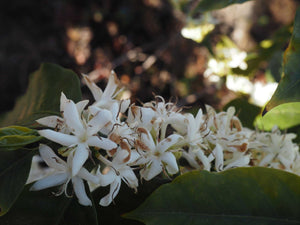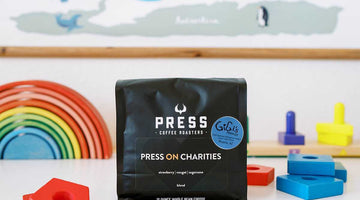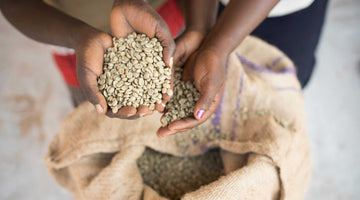We’re excited to once again offer both the Natural and Washed Process coffees from one of the top farmers in the Gedeb Woreda– Bedhatu Jibicho– and love the opportunity to showcase how the difference in processing methods, when given the same coffee cherry, can have such a large impact on the flavor of the cup.

The Natural Process offers a delicious mix of berries, sweet acidity, and and full bodied roundness when brewed.
The Washed offers a wonderfully clean and sweet cup, with notes of honeydew, apricot, and vanilla with a lighter body than its Natural counterpart.

The Producer
In the past few years, Ethiopia has opened new opportunities for individual farmers to export their own coffee, rather than limit exportation to cooperative unions and private companies. Bedhatu is native to the Worka area in the Gedeb district of Yirgacheffe. Her late husband was granted the family land in the 1960s from the Ethiopian government. After he passed away in 1991, Bedhatu continued to single-handedly manage the farm while raising all six of their children. She eventually joined the larger Worka cooperative in 2011, and then the nearby Banko Gotiti cooperative when it formed in 2013, both part of the Yirgacheffe Coffee Farmers Cooperative Union (YCFCU). In the same year she was recognized as a model farmer by the union and became eligible for processing training that would allow her to prepare and sell her own coffee as a separate lot, marketed and handled by the union as part of a new program of differentiation.
Bedhatu’s sons had joined the family farm effort a few years prior, and with their help and the union’s blessing, the family eventually formulated a separate business entity that could export direct. That business, Roba and Family Coffee, is perhaps the most successful single-farm exporter we know of in Gedeb. While the Roba family has expanded their reach to support other producers, we are always pleased to have an offering from Bedhatu’s original 84-acre farm, which she has personally managed for over 50 years now without the use of chemical inputs.
84-acres is drastically larger than most farms in the area, and Bedhatu employs 20 year-round workers and another 130 seasonal workers for the harvest who are primarily women. The farm itself produces about 5 containers of exportable coffee each year, which is always among Royal’s top qualities and one of the most sought-after Ethiopia profiles we carry. For this washed lot, cherries are carefully hand sorted and floated to separate out less dense beans, then depulped, fermented for 48 hours, and washed and classified again by density in grading channels. The parchment is rinsed and placed on raised beds where it is hand sorted again and dried over a period of 12 to 15 days. The parchment is often covered during the afternoons to prevent harsh drying in the intense sun. As a family owned business, emphasis on social impact in the communities where they source coffee is taking shape.
The Roba family has invested in more localized cherry collection sites to reduce the transportation cost for other producers. They have also contributed to road construction projects that make travel a bit easier for everyone. Annual farm visits from Royal CEO Max Nicholas-Fulmer and regular communication with farmers through Haile Andualem, Royal’s representative on the ground in Ethiopia, has been an essential component for ensuring that farmers and washing stations are following strict farm management and post-harvest protocols to keep their coffees strong. For most newer single-farm exporters, the results have been increasing cup quality and higher returns for the individual producers over time. For Bedhatu and team, however, the coffee is simply always outstanding.







